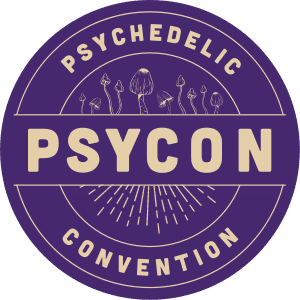Glossary of Psychedelic Terms
The psychedelic space is ramping up quickly, promising to revolutionize the healthcare space as we know it. With so many different compounds and industry phrases, it can be overwhelming.
PsyCon aims to help educate and elevate this emerging industry and those who want to participate. Explore our psychedelic glossary for a quick rundown on many of the most essential terms in this realm.
Ayahuasca: A South American psychoactive and entheogenic substance often used in Indigenous shamanic spiritual ceremonies as a tool for enlightenment and discovery.
Center for Drug Evaluation and Research (CDER): A subsector of the United States Food and Drug Administration (FDA) that focuses on over-the-counter and prescription drugs, ensuring their safety and availability for citizens.
Clinical Trials: FDA-funded sessions where drug researchers test on participants to calibrate dosage, look for potential side effects, and determine the general outcome of the drug’s impact.
Controlled Substances Act (CSA): 1970 federal legislation that divided drugs into five respective “schedules” determining the strictness with which they should be judged.
Entheogen: A plant-based, psychedelic chemical substance often utilized for religious or spiritual practices.
Esketamine: A hallucinogenic drug often used for the treatment of depression.
Fast Track (FDA Designation): An FDA process designed to facilitate the expedited review of drug development for treating medical conditions or illnesses.
Hallucinogen: Psychedelic drugs that alter a person’s mood, thought patterns, perceptions, and overall state of consciousness.
Ibogaine: A West-African plant-based psychedelic often utilized to treat hunger, fatigue, or low sex drive.
Investigational New Drug (IND): A drug that has been lab-tested and approved by the FDA for clinical trial usage.
International Center for Ethnobotanical Education Research and Service (ICEERS): A Spain-based nonprofit organization dedicated to the research and development of global psychedelics studies.
Ketamine: A psychedelic anesthetic often used to treat depression or pain.
Lysergic Acid Diethylamide (LSD): An odorless, colorless, highly potent psychedelic that can cause users to hallucinate visually, mentally, and auditorily.
Mescaline: A plant-based psychedelic known for hallucinogenic effects that are similar to that of LSD.
Microdosing: Consuming a substance dose that is too small to produce hallucinogenic effects but large enough to produce a mild cellular response.
Multidisciplinary Association for Psychedelic Studies (MAPS): A nonprofit organization formed to raise awareness and spread education around psychedelics.
New Drug Application (NDA): An FDA application to propose the approval for a new pharmaceutical to be sold and marketed in the United States.
N, N-Dimethyltryptamine (DMT): A naturally-occurring hallucinogenic often used for spiritual, ritualistic experiences.
Oakland Hyphae: A Black-owned business that provides education, psilocybin testing, and high-quality resources on psychedelics studies.
Peyote: A cactus plant that contains mescaline and is often used in Indigenous ritualistic ceremonies.
Psilocybin: A psychedelic mushroom that produces hallucinogenic effects when ingested.
Psilocin: A substituted tryptamine alkaloid that is present in most psychedelic mushrooms and responsible for their hallucinogenic effects.
Psychedelic: A substance that causes hallucinations and/or the expansion or alteration of thought, mood, and perception.
Psychedelic Therapy: A type of therapy that utilizes psychedelic drugs to treat patients.
Salvia: A Mexican herb that can have psychoactive effects when smoked or ingested.
Spore Kit: A kit designed for cultivating psilocybin mushrooms at home.
Tryptamine: An indolamine metabolite of the amino acid, tryptophan that is often utilized for its hallucinogenic properties.
The Beckley Foundation: A United Kingdom-based organization dedicated to psychedelics research and awareness.
The Zendo Project: An organization that educates people on psychedelics harm reduction and provides a network for the collective sharing of psychedelics experiences.
18-Methoxycoronaridine (18-MC): A derivative of ibogaine that was invented in 1996.
3,4-methylenedioxymethamphetamine (MDMA): A potent empathogen–entactogen that often comes in tablet or crystal form and is utilized for altered sensations, increased energy, and increased pleasure.
5-MeO-DMT (5-methoxy-N,N-dimethyltryptamine): A South American plant-based psychedelic that is similar to DMT




